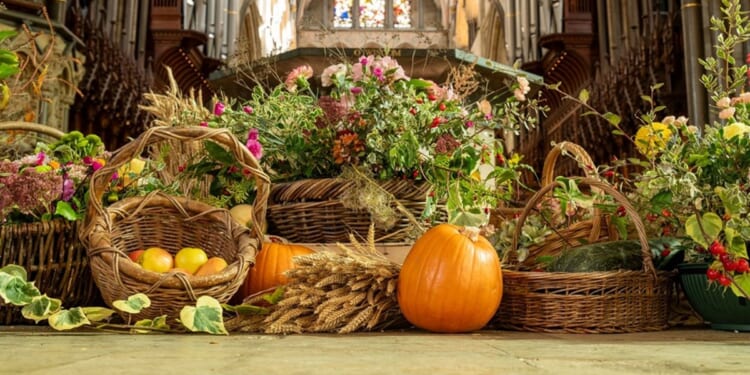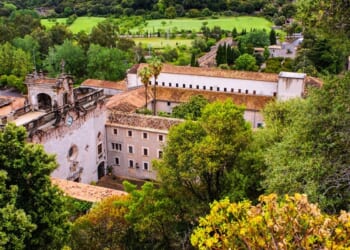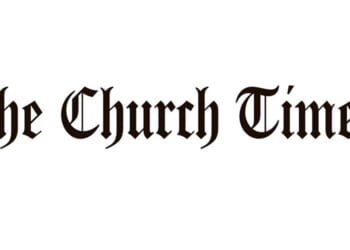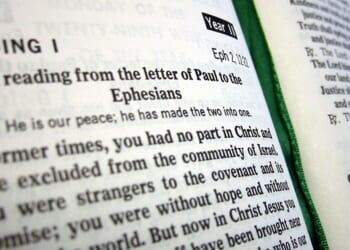HARVEST festival remains a mainstay in the Church of England calendar, but is less common in denominations that have been expanding in recent years, research from the charity Green Christian suggests.
Its representative survey of more than 600 regular churchgoers in Britain found that, while two-thirds of Anglican, Methodist, Roman Catholic, and Presbyterian churches continued to mark harvest in the Church’s year, just under one quarter of respondents from New Churches, and fewer than half from Black Majority, Independent, and Pentecostal churches, normally held services.
Professor Tim Cooper, of Nottingham Trent University, who led the research, stressed the importance of the festival to Christians. “Churchgoers of all backgrounds and traditions claim to care for God’s creation. But if we make choices in our food and farming practices that are not sustainable, we lack environmental integrity and dishonour the creation that God loves.”
This was also disrespectful to farmers, he suggested. “Harvest suppers are an ideal opportunity for churches to provide meals based on LOAF principles — using ingredients that are local, organic, animal-friendly and fairly traded — and thereby encourage Christians to put the principle of caring for God’s creation into daily practice.”
Reports from dioceses indicate that Harvest festivals are increasingly focused on giving. The harvest appeal at Chichester this year raised £10,000 for the ecumenical charity Friends of the Holy Land, which will go directly to support families facing severe deprivation. Tearfund is a common recipient of harvest appeals, and foodbanks are a popular focus for harvest collections.
“Harvest nowadays is a wonderful opportunity to connect in people’s minds the growing focus in our society on the environment, health, and food, with God,” a combined group of churches and schools in Stroud reports.
“It is a wonderful opportunity to talk about the production and consumption of local food [and] to give thanks for all the wonderful gifts of creation and to reconnect with our place as stewards of that creation. It is also an opportunity to pray for and with the farming community, many struggling in today’s global economic climate.”
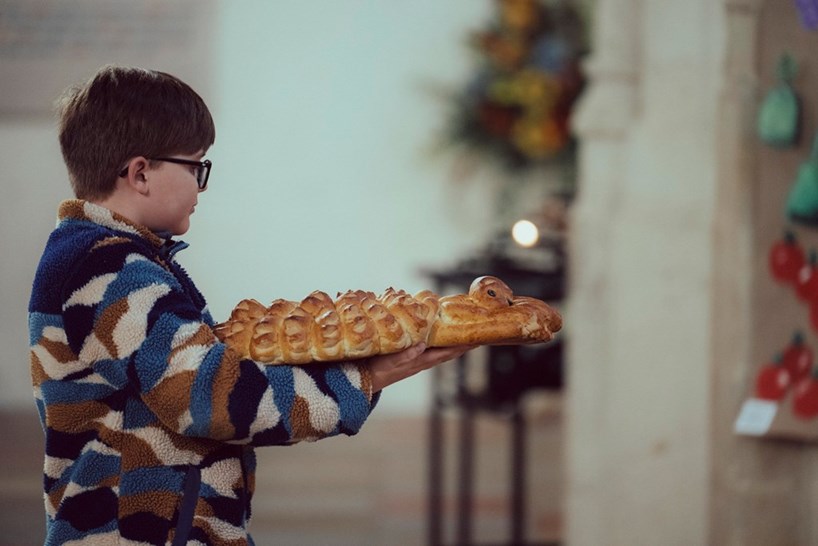 Owen HHarvest giving in St Edmundsbury Cathedral
Owen HHarvest giving in St Edmundsbury Cathedral
The focus is strongest in rural churches, and in Church of England schools, but not exclusively. The emphasis at St Peter’s, Belsize Park, in London, will be a celebration and thanksgiving for “food producers, local providers, suppliers, cafés, and restaurants”, and the community is encouraged to bring foods and toiletries to support the local homeless charity, St Mungo’s.
In Brent, children from Christ Church School went to church for the harvest festival, but also harvested potatoes, spring onions, and garlic from the school’s garden beds for Mohamad, the school chef, to use in dinners.
Services in cathedrals have a focus on climate change, farming, food poverty, and sustainability, such as in the diocese of St Edmundsbury & Ipswich, which has had a full day of “seasonal celebration, community gathering, and thanksgiving”. There were Suffolk horses, and cattle and sheep on the Green outside the cathedral, while a centrepiece was the Love Britain Food Harvest Torch, which has travelled round agricultural shows in Suffolk, and was due to be a feature of the National Harvest Festival at Westminster Abbey on Thursday.
Harvest celebrations in Winchester were part of the Big Green Weekend. Harvest donations in Newcastle Cathedral will help to support the West End Refugee Service, and artwork by asylum-seekers and refugee members of the Bible-study group has been inspired by the cathedral and the natural world. Wakefield held a Messy Harvest; Hereford Cathedral hosted the two-day county harvest festival (including an appearance of Ronaldo, the bull); while in Salisbury, the county harvest thanksgiving choral evensong featured a procession of offerings.
Uniquely, at the county harvest festival service at Chelmsford Cathedral, a barn owl from Barleylands Farm flew down the middle of the aisle, having made an “impeccable” practice flight in advance of the event. At previous festivals, tractors have driven down the central aisle, and young farmers have performed choreography with wheelbarrows.

